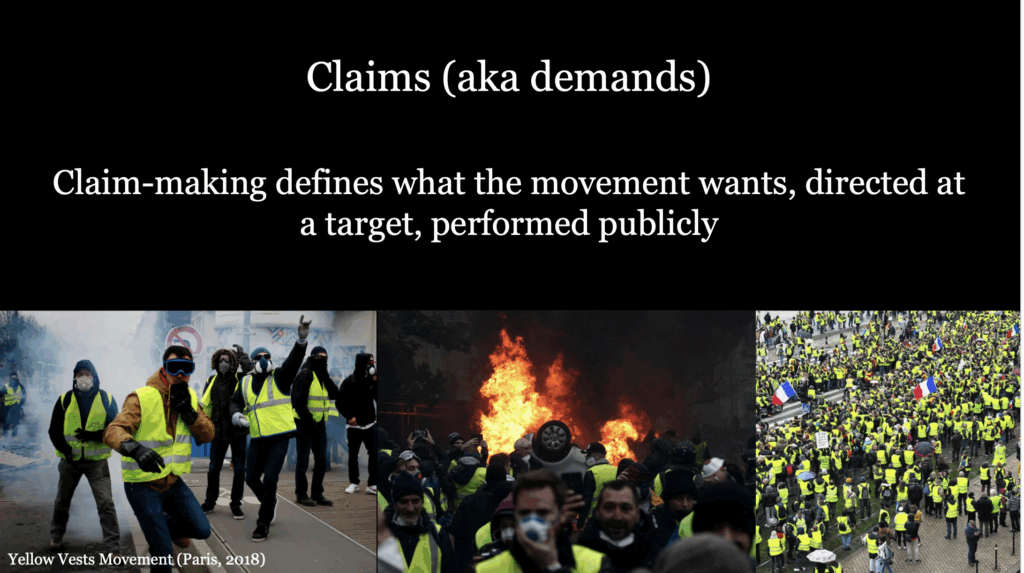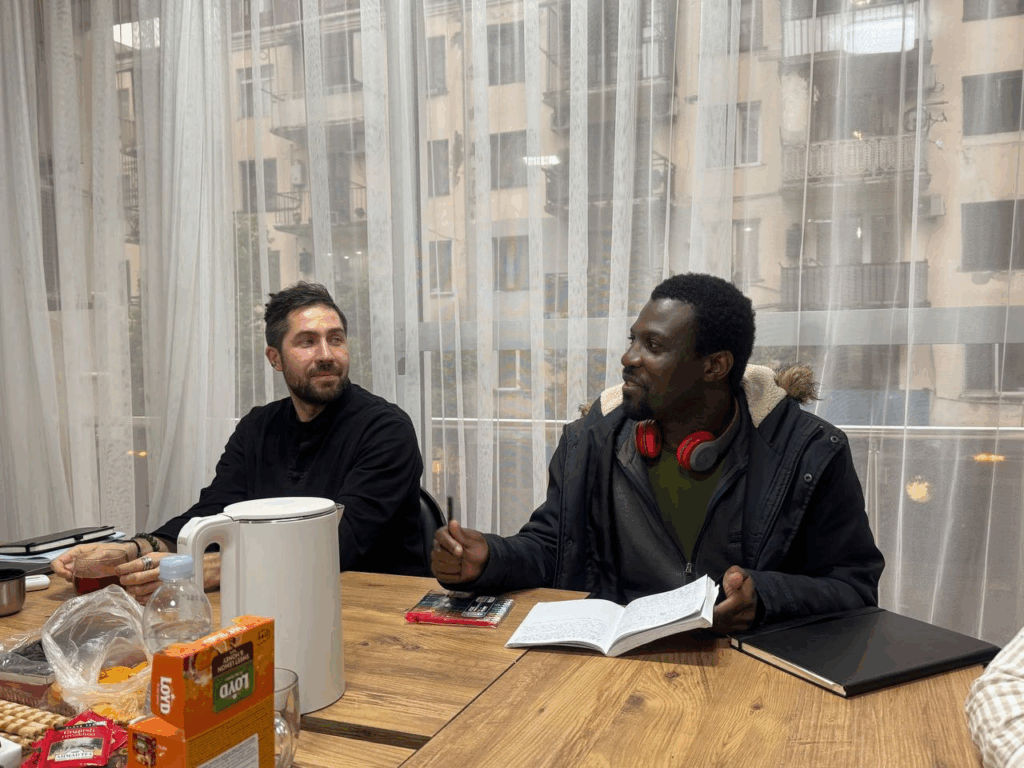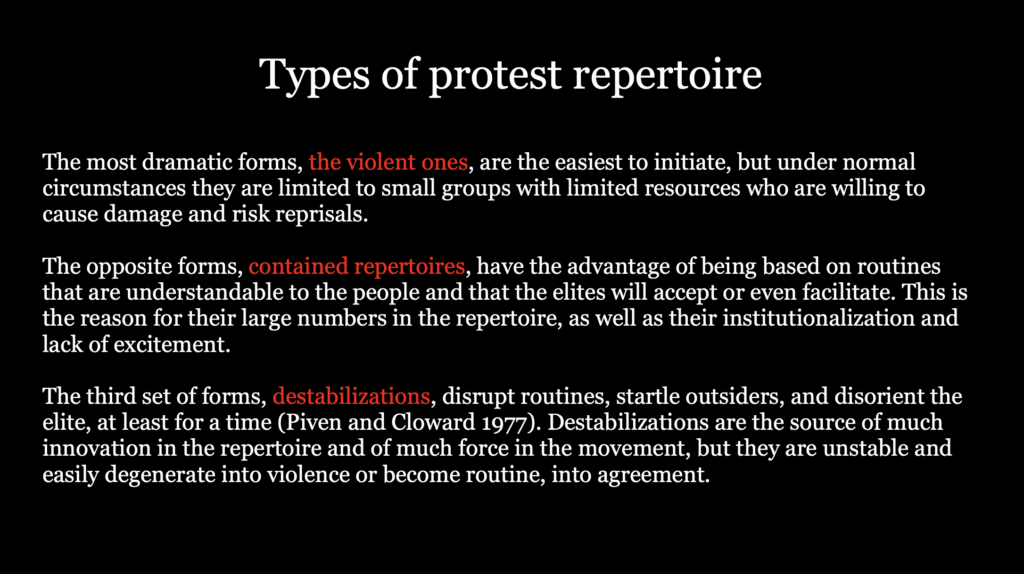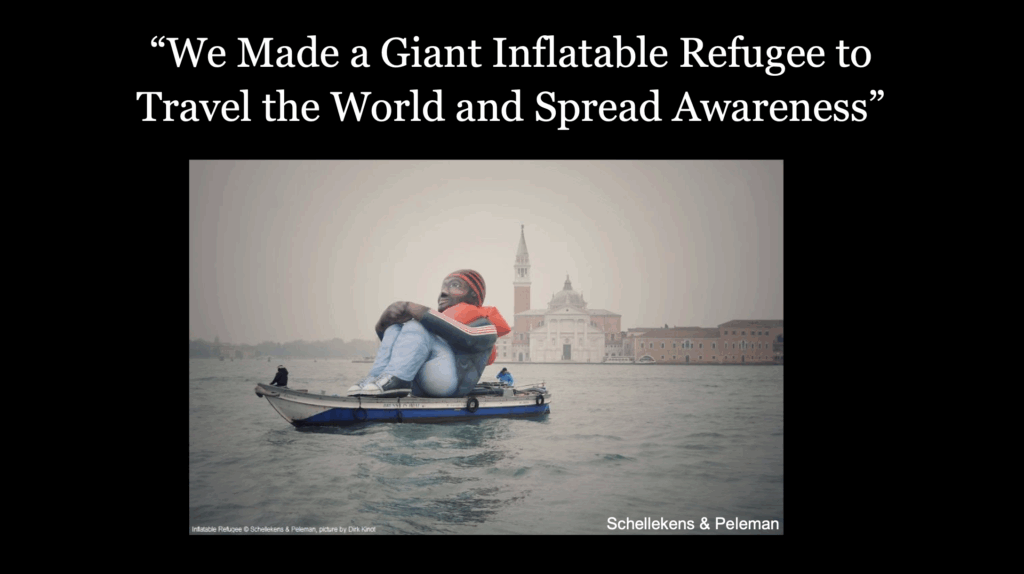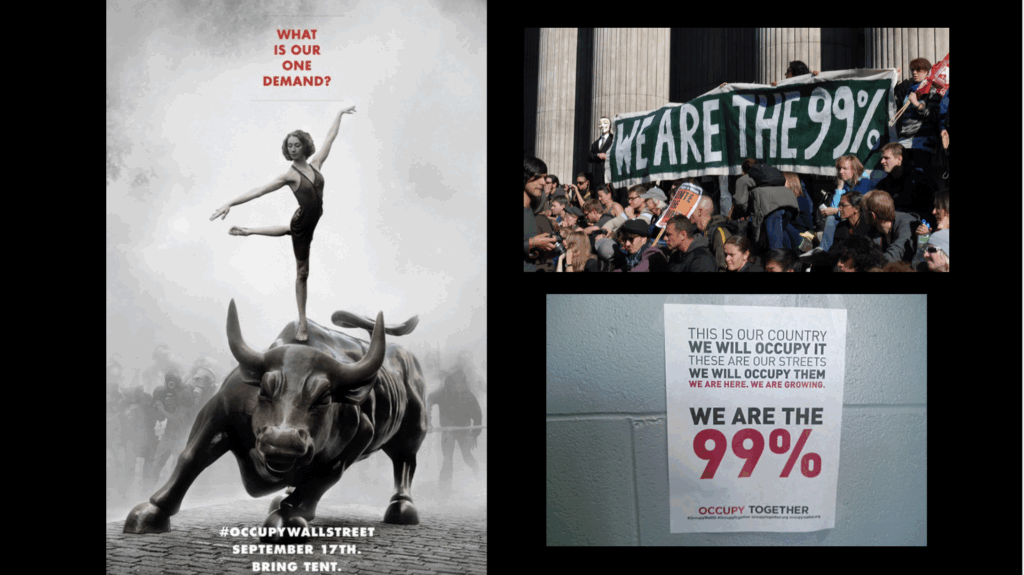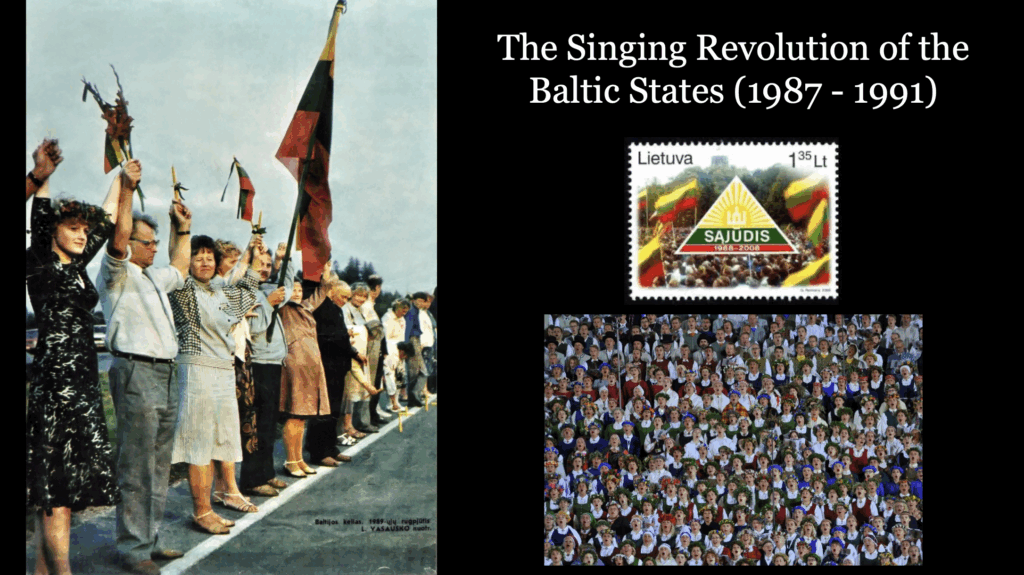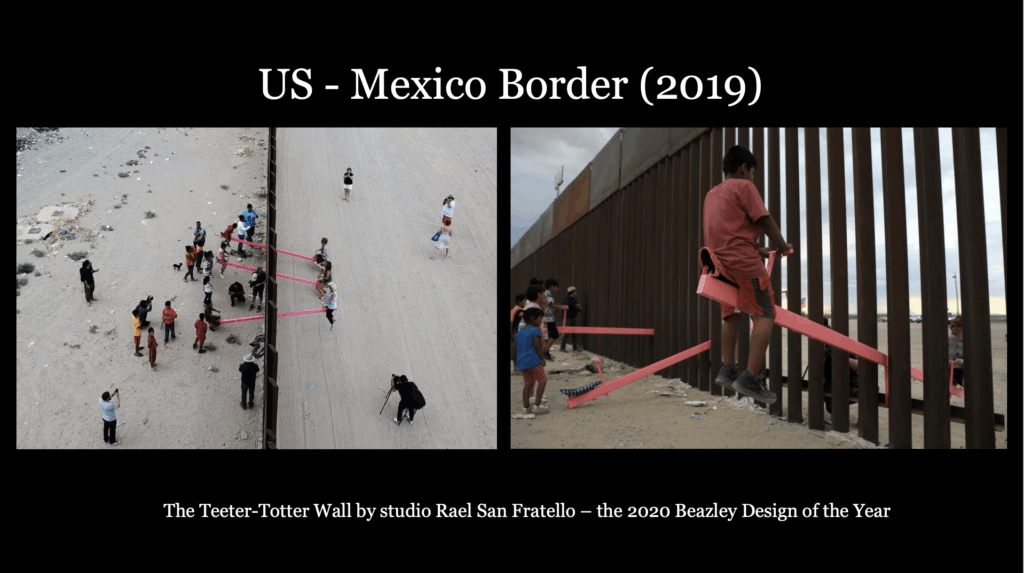An entire course could be devoted to examples of repertoires. Repertoires are the tools / actions through which protestors communicate their demands or claims to exert pressure on more powerful actors. Art in particular has always been a powerful tool for social and political change. Since ancient Greece, playwrights like Aristophanes have used theater to criticize the issues and rulers of the time. Last Thursday, we took a look at many contemporary examples — from the Writer’s Guild Hollywood strikes and Occupy Wall Street to Keith Haring and #MeToo.
Repertoires of contention often fit into three categories: violent, contained, or destabilizing. But how does historical precedent and level of oppression influence the choice of repertoire? It is not random or invented anew each time but rather deeply engrained in protest culture and produced under the constraints of the political regime. (Building barricades is a classic repertoire of French protestors for example, or hunger striking in Russia since Soviet times).
To make your action attractive, make it attractive, creative, theatrical. The poetic function is hard to overestimate. Modern protest publics have a hard time responding to mere calls for support if it is not packaged in an attention-grabbing and creative way. "Performativity" becomes key, bringing not only excitement but the growth of solidarity amongst participants.
Are all political movements inherently social? How do we address protests and counter-protests based on morals / values— such as pro-life versus pro-choice? Who are demands directed to? How do strikes and demonstrations, once prohibited, eventually become traditional? Did the introduction of women in the workforce during lead to more room for sexual violence, ultimately paving the way for #MeToo movement? These are all questions that we addressed in a lively discussion that kept us at the roundtable until dark!
Join us for the final class on consequences and outcomes on May 8th at 20:30!


